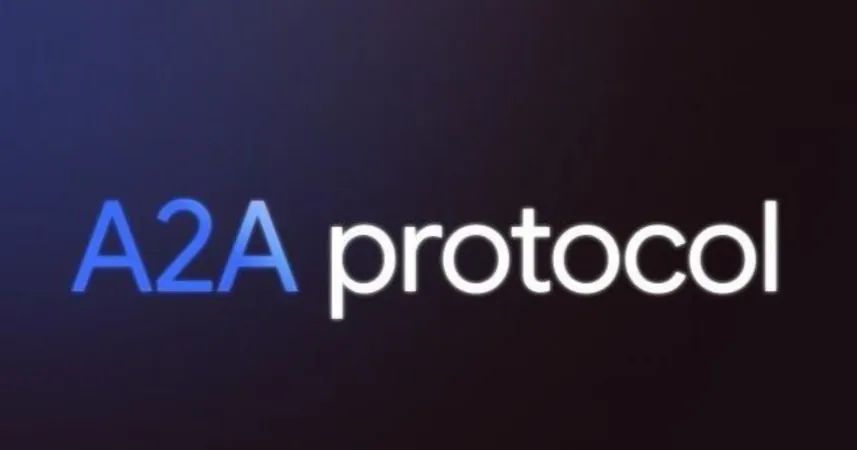
Unlock the Future of AI: Microsoft Introduces A2A .NET SDK for Dynamic Collaborative Agents
2025-08-05
Author: Noah
Microsoft's Game-Changer: The A2A .NET SDK
In an exciting development for the tech community, Microsoft has launched the A2A .NET SDK, a powerful toolkit designed for developers aiming to create AI agents that can communicate and collaborate seamlessly using the innovative Agent2Agent (A2A) protocol.
Bridging Communication Gaps with A2A Protocol
The A2A protocol revolutionizes the way AI agents interact by providing a standardized framework for discovering one another, negotiating communication formats, and exchanging messages or tasks. This means no more clunky integrations—whether your agents are built in .NET or any other programming language, they can operate together effortlessly.
Built on a Strong Foundation: Integrating with Semantic Kernel
The A2A .NET SDK is a perfect companion to Microsoft’s existing Semantic Kernel, an open-source AI orchestration framework. While the Semantic Kernel already supports A2A functionalities, this new SDK fosters quicker innovation on protocol features, providing a seamless integration path for developers aiming to launch production-ready applications.
Key Features That Empower Developers
What makes the A2A .NET SDK irresistible for developers? Here are its standout capabilities:
- **Agent Capability Discovery:** Agents can easily find and describe their abilities using the A2ACardResolver class through standardized Agent Cards.
- **Flexible Communication:** Supports both immediate messaging and the handling of long-running asynchronous tasks, giving developers the freedom to choose.
- **Real-Time Data Streaming:** Get instant updates with Server-Sent Events (SSE), making your agents more responsive than ever.
- **ASP.NET Core Integration:** Effortlessly expose agents as web services via the A2A protocol, streamlining deployment processes.
Start Building: Simple Examples and Robust Capabilities
With the A2A .NET SDK, developers can create sophisticated agents that do more than just send messages—they can manage ongoing tasks, deliver real-time results, and be deployed within familiar .NET environments. A simple echo agent example is even included to kickstart your journey into this exciting world.
Addressing Challenges: Authentication and Security Concerns
While the SDK simplifies agent communication, it also raises valid questions about authentication and security, particularly in production environments. Developer Natraj Yegnaraman has expressed concerns regarding how agents authenticate with servers, especially in scenarios where Azure is involved and OAuth authentication is necessary.
It’s clear that as developers dive into this innovative toolkit, resources like easy-to-follow video overviews will be invaluable for mastering these advanced concepts.









 Brasil (PT)
Brasil (PT)
 Canada (EN)
Canada (EN)
 Chile (ES)
Chile (ES)
 Česko (CS)
Česko (CS)
 대한민국 (KO)
대한민국 (KO)
 España (ES)
España (ES)
 France (FR)
France (FR)
 Hong Kong (EN)
Hong Kong (EN)
 Italia (IT)
Italia (IT)
 日本 (JA)
日本 (JA)
 Magyarország (HU)
Magyarország (HU)
 Norge (NO)
Norge (NO)
 Polska (PL)
Polska (PL)
 Schweiz (DE)
Schweiz (DE)
 Singapore (EN)
Singapore (EN)
 Sverige (SV)
Sverige (SV)
 Suomi (FI)
Suomi (FI)
 Türkiye (TR)
Türkiye (TR)
 الإمارات العربية المتحدة (AR)
الإمارات العربية المتحدة (AR)